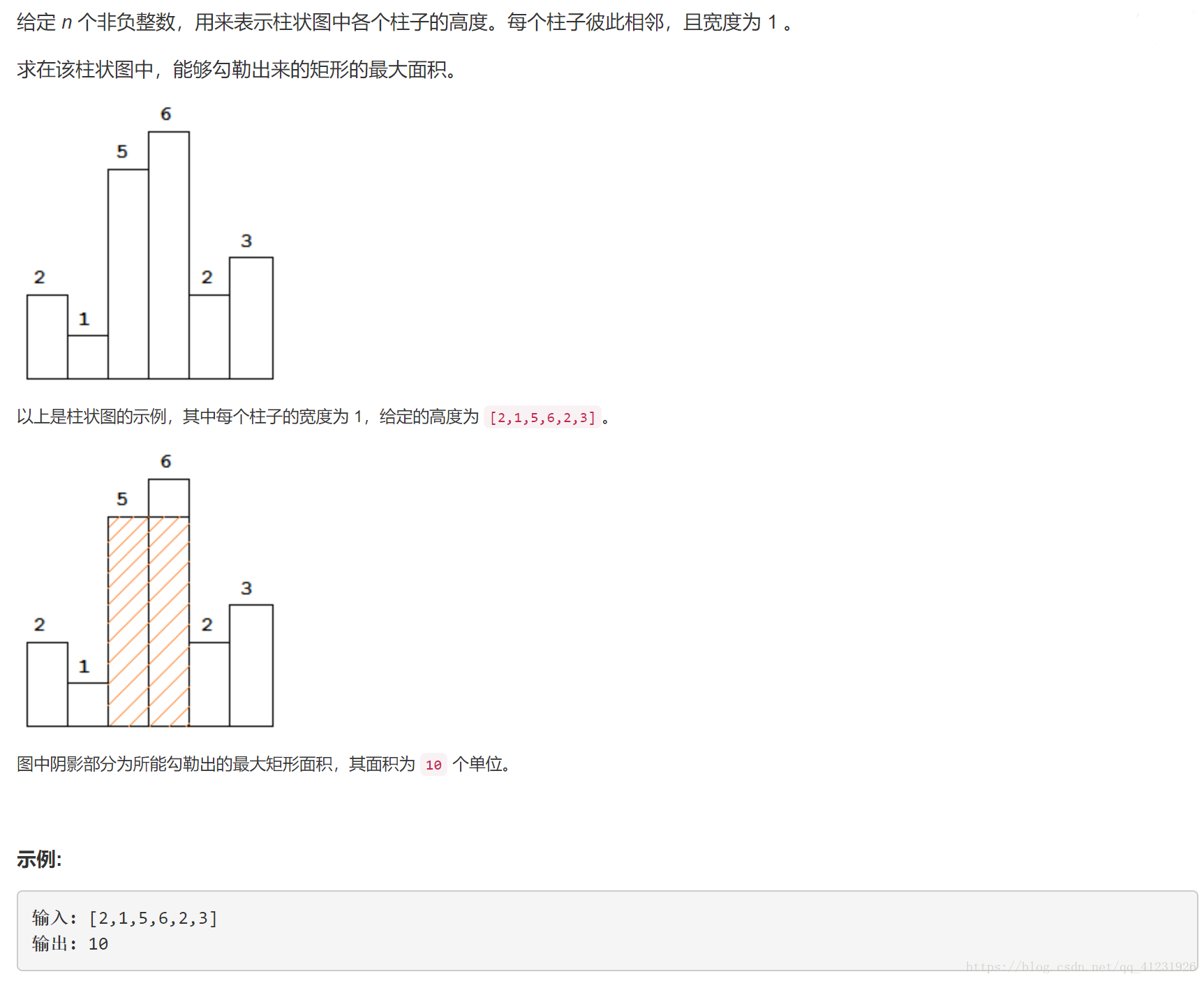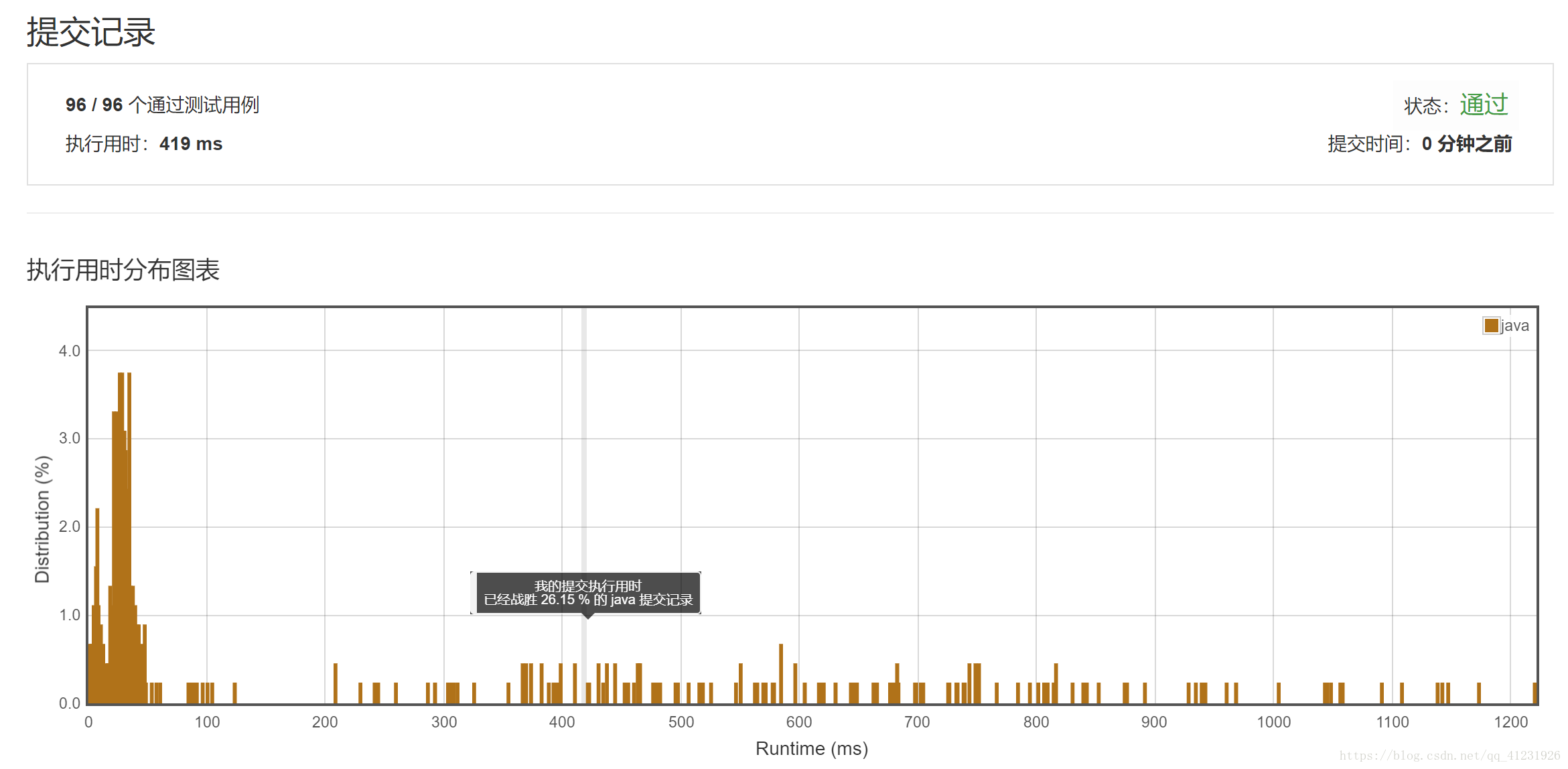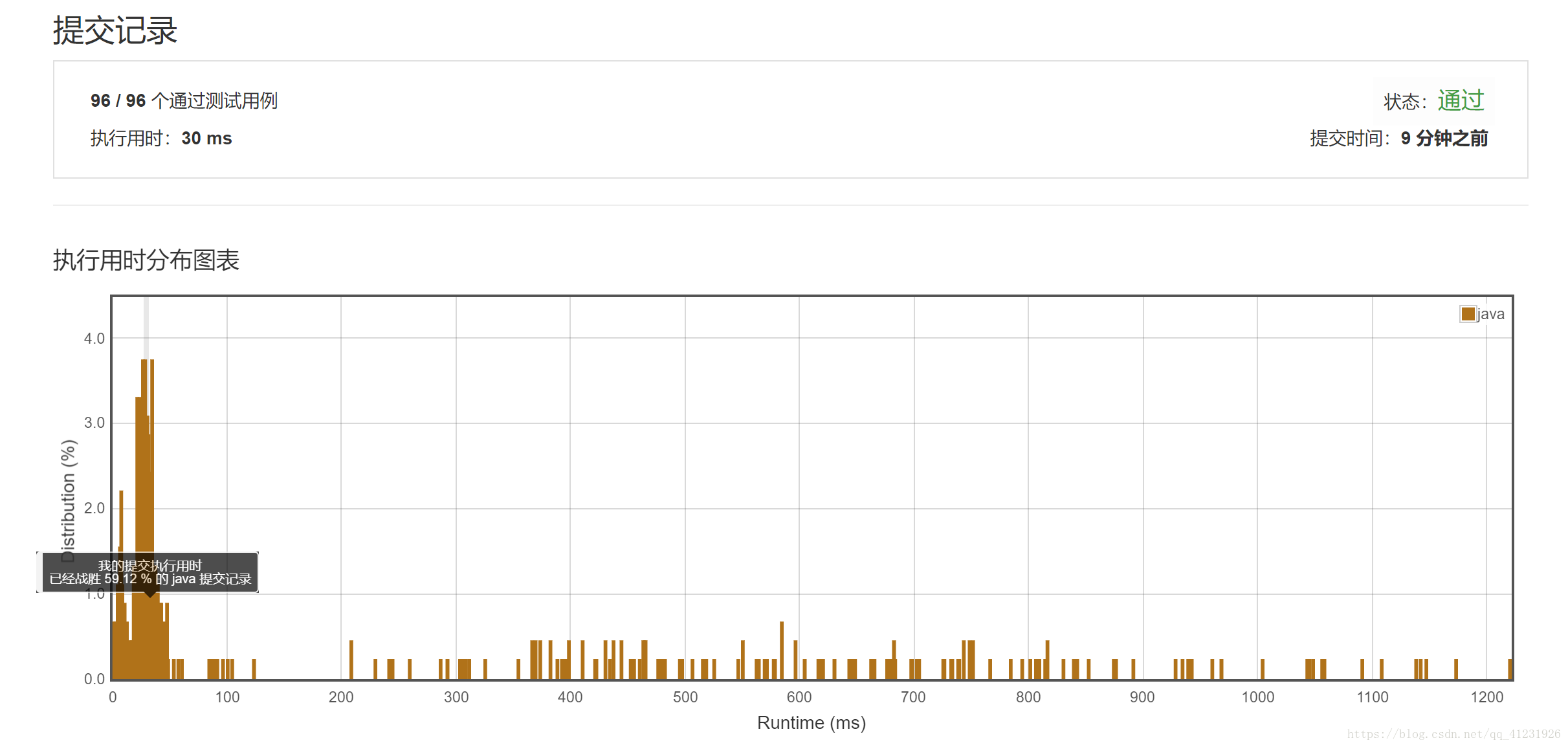我的LeetCode代码仓:https://github.com/617076674/LeetCode
原题链接:https://leetcode-cn.com/problems/largest-rectangle-in-histogram/description/
题目描述:
知识点:栈
思路一:对于每一个位置寻求其所在高度的最大矩形
这是我的第一思路。对于数组中的每一个元素,都寻求其对应高度的最大矩形,求n个结果中的最大值即为最大矩形的面积,其中n为heights数组的长度。
时间复杂度根据数组值有所不同,但一定介于O(n)~O(n ^ 2)之间。空间复杂度是O(1)。
JAVA代码:
public class Solution {
public int largestRectangleArea(int[] heights) {
int result = 0;
int n = heights.length;
for (int i = 0; i < n; i++) {
int left = i;
for (; left >= 0; left--) {
if(heights[left] < heights[i]){
break;
}
}
int right = i;
for (; right < n; right++) {
if(heights[right] < heights[i]){
break;
}
}
result = Math.max(result, heights[i] * (right - left - 1));
}
return result;
}
}LeetCode解题报告:
思路二:利用栈先进后出的特性保存之前遍历的每一个索引
如果当前遍历的元素小于栈顶元素,我们就可以进行如下循环:
首先弹出栈顶元素,记录其值为index。
计算矩形左边界。如果此时栈为空,我们记录其左边界为-1。否则,我们将栈顶元素的值作为左边界。
每一次循环过程都可以计算出一个面积值。
循环结束后将当前元素入栈,遍历下一个元素。
为了最后能让栈中的所有元素都出栈,在数组的末尾添加一个新元素,其值为0。这样当遍历到最后一个元素时,确保所有元素都能出栈。
时间复杂度和空间复杂度均是O(n)。
JAVA代码:
public class Solution {
public int largestRectangleArea(int[] heights) {
int n = heights.length;
int[] newHeights = new int[n + 1];
for (int i = 0; i < n; i++) {
newHeights[i] = heights[i];
}
newHeights[n] = 0;
int result = 0;
Stack<Integer> stack = new Stack<>();
for (int i = 0; i < n + 1; i++) {
while(!stack.isEmpty() && newHeights[stack.peek()] >= newHeights[i]){
int index = stack.pop();
int left = stack.isEmpty() ? -1 : stack.peek();
result = Math.max(result, newHeights[index] * (i - left - 1));
}
stack.push(i);
}
return result;
}
}LeetCode解题报告:


